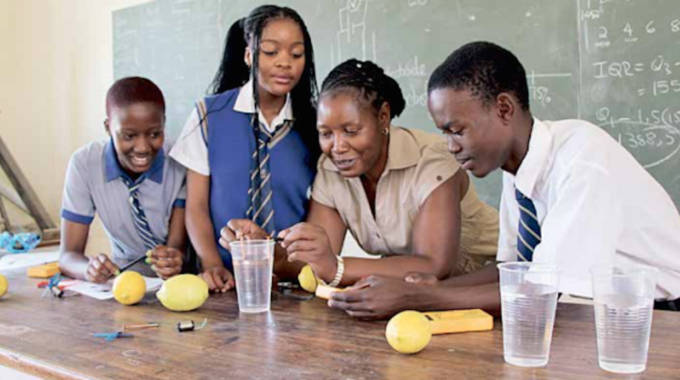
The ManicaPost

Shelton Mwanyisa
Emerging Issues In Education
WELCOME to the column Emerging Issues in Education.
The curriculum will always undergo modifications and transformations since society is ever changing.
Therefore, review processes also recommended the need for a system of assessment to track learner progress.
The shift from the summative examination-oriented education to a hybrid of formative and summative emphasises desirable traits and competences were long overdue.
The Competence Based Curriculum is consistent with the implementation of Education 5.0 which has added innovation and industry as important pillars needed to attain the nation vision 2030 of an upper middle economy.
The essence of competence-based curriculum
Continuous Assessment (CA) is an on-going system of monitoring learners’ progress with the aim of helping them improve their learning.
It is done by teachers in the school environment through daily teaching, projects, tests and observations among other teaching strategies.
It guides the preparation of learners for appropriate roles in society from Early Childhood Development (ECD) to secondary level.
As seen from this angle CALA is part of Competence-based Education (CBE).
Competence based Education involves learners demonstrating what they know, and agreed upon learning outcomes that reflect successful functioning in life roles.
The Competence Based Curriculum (CBC) is a curriculum that emphasises what learners are expected to do rather than focusing on what they are expected to know.
Therefore, it caters for diversity in terms of abilities as opposed to traditional end of course examinations.
Final examinations do not adequately assess all learner competences since they are largely pen and paper examinations administered at the end of a course or learning period.
More so, with formative assessment, teachers are accorded the opportunity to participate fully in the assessment of their learners.
On that basis formative assessment is provides an opportunity for learners to correct and be corrected before submission of work for final marking.
In the process of reflecting on their learning and making adjustments learners achieve deeper understanding.
Therefore, the holistic development of our children by supporting them to acquire the knowledge, competencies and attitudes needed to succeed in the world of today and tomorrow.
The assessment framework also embraces Information and Communication Technology as a key learning area and critical-enabler of research.
CBC contributes to the assessment outcomes of the learner at all key exit levels, that is ECD, Junior School, Ordinary Level and Advanced Level.
This framework is, therefore, a synthesis of formative and summative assessment procedures into the teaching-learning processes.
Through continuous assessment learners can acquire and apply the knowledge, skills, values and attitudes to solve situations they encounter in everyday life.
This is well in line with the Education 5.0 and the philosophy of Ubuntu which emphasizes the promotion of innovation and development of industry.
The summative examination model adopted at independence falls short of the assessment of pertinent skills that the contemporary political, economic, technological and social environment demands.
Summative examinations encouraged rote learning and drilling as learners reproduced bookish knowledge in the exams without useful skills for life.
Non-cognitive skills are part of the curriculum and so must be assessed too.
The summative assessment system ignored other dimensions of child development which is deficient of the attributes of comprehensive assessment procedures.
References: Curriculum Framework for Primary and Secondary Education 2015-2022.



